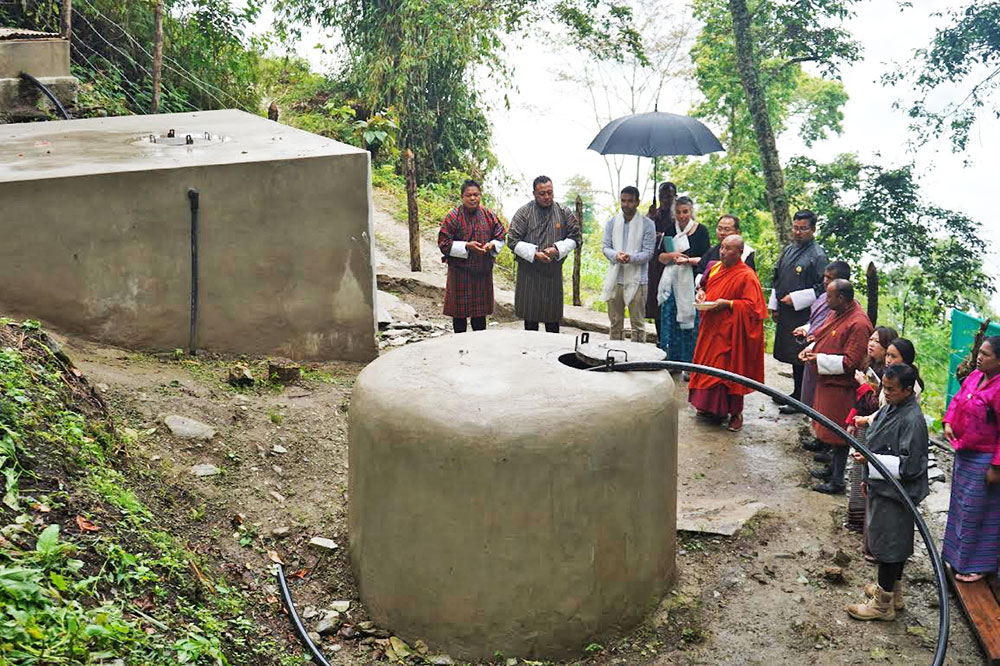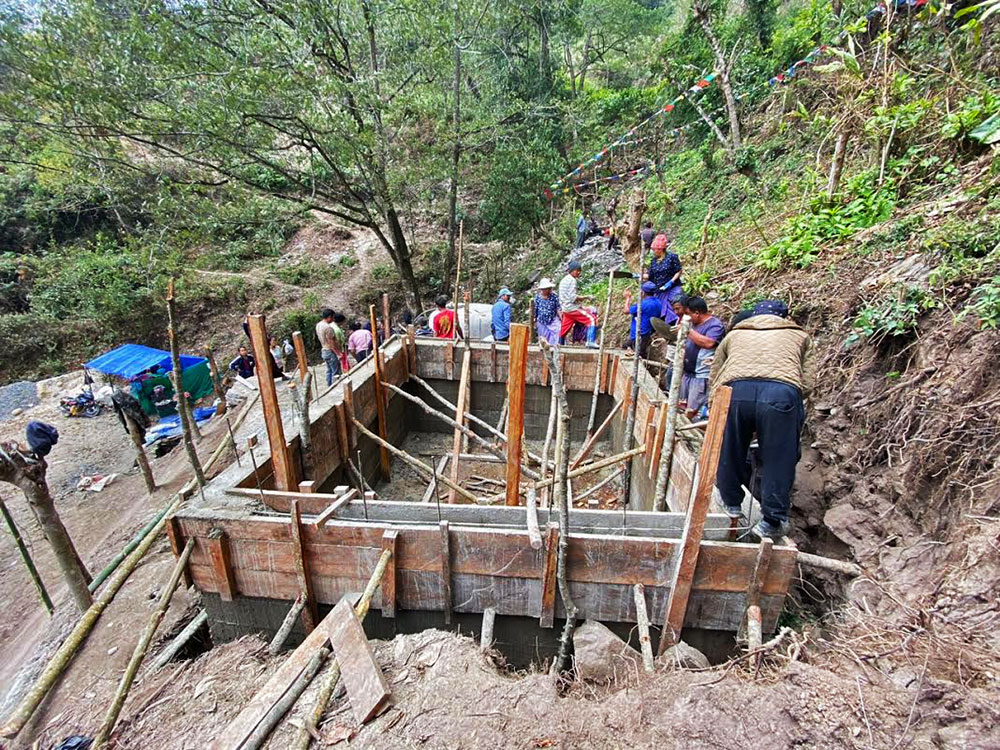YK Poudel
Lal Bahadur Balampaki, a 35-year-old farmer from Tashiling-toed (Balakhop) in Semjong, Tsirang, harbours a simple yet ambitious dream: to grow organic vegetables and bring them to market. His aspirations may soon be realised with the arrival of a crucial resource—drinking water. A new supply line, stretching over 75 kilometres, now provides water to his community, benefiting around 400 individuals.
Tashiling-toed, a community long plagued by the scarcity of clean and safe drinking water, has finally found relief thanks to the efforts of the Tarayana Foundation. The Foundation played a pivotal role in addressing the issue by constructing water reservoir tanks at two strategic locations. The reservoirs, with capacities of 50,000 litres and 10,000 litres, now ensure a steady and reliable water supply for the residents.
Tara Bir, another farmer, said that the Foundation provided the necessary materials, while the villagers contributed the labour. It took them a month to complete the work.
“This support has ensured that the farmers and the community now have access to clean drinking water all year round,” he said.

A new supply line, stretching over 75 kilometres, now provides water to Tashiling-toed, benefiting 400 individuals
Deo Bahadur Mafchan, the Tshogpa of Tashiling-toed, said that the project has benefited over 400 individuals, including the local school and basic health unit.
“Most farmers here grow cash crops like cardamom, ginger, chilies, avocados, as well as engage in poultry and pig farming,” he said. “Before the monsoon, we completed land management work on about 10 acres. The plan is to manage around 39 more acres once the monsoon ends.”
Senior field officer of the Foundation, Namgay, said that the Foundation conducted spring-shed assessment in 2022 to identify the potential recharge zones for Balukhop and Debathang springs and constructed the tanks worth Nu 1.64 million.
“Of 105 households, 40 rely on Balakhop spring and 50 on Debathang spring along with Semjong Primary School and Basic Health Unit,” he said. “An alternative source located 15 kilometres away was identified and diverged to the reservoir.”
The Foundation has also established Water User Groups (WUGs) to manage and maintain the springs.
“The Foundation will provide plumbing training and spring-shed intervention at the identified recharge zones,” he said.
Earlier this year, with technical support from the National Soil Services Centre, the community received sustainable land management awareness and sensitisation. The sessions included both theoretical and practical training, equipping the farmers with the necessary knowledge and skills to manage their land effectively.
Harka Mafchan, a farmer, said that as part of the practical training for land management, around two acres were covered with stone bunding, and another two acres were planted with napier grass, benefiting eight households. “This year, the Foundation has promised to support the development of 38.35 acres of agricultural land on a 25-degree slope in the village.”
The Foundation plans to address several key issues as part of the project, including human-wildlife conflicts, sustainable land management, and the development of community-based businesses and eco-tourism.
These initiatives are expected to support the communities by addressing the challenges they face, such as human-wildlife conflicts. They will also secure water resources for local communities, implement sustainable livelihood strategies, and develop community-friendly businesses and alternatives.
Supported by the Federal Ministry of Environment, Nature Conservation, Nuclear Safety and Consumer Protection of Germany, and International Climate Initiative, the Foundation is carrying out an USD 2.73 million eight-year project titled ‘Living Landscapes: Securing High Conservation Values in South-Western Bhutan’, which will end in March 2028. The project covers 21 gewogs in nine dzongkhags – Thimphu, Paro, Chhukha, Dagana, Sarpang, Tsirang, Samtse, Haa and Zhemgang.


